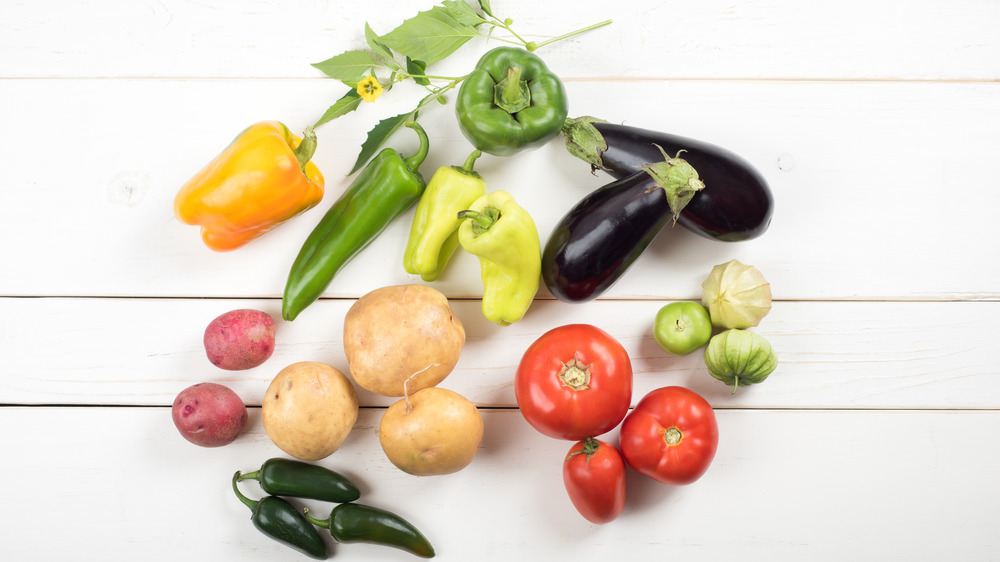The Risky Side Effect Of Eating Nightshade Vegetables
While they may sound like something out of a scary movie, nightshade vegetables are more common than you think. If you've eaten french fries, salsa, or even pizza, you've consumed nightshades. But are nightshades something you should be worried about?
Doctors and nutritionists are constantly telling you to incorporate more vegetables into your diet. Most vegetables are good sources of important nutrients that are hard for people to get from other sources. Vitamins, antioxidants, and plenty of fiber can be found in tasty carrots and kale. And they can also be found in nightshades (via Livestrong).
So what are nightshades? The most common examples are tomatoes, white potatoes, and peppers. Eggplants, tomatillos, and even some spices are also part of the nightshade family. What ties all of these foods together is a bitter chemical called solanine. This toxic substance is produced by the plants as a natural defense to keep pests from eating them. While it's a rare occurrence, solanine can even poison humans when consumed in large enough quantities, causing diarrhea, headache, vomiting, and even death (via Michigan State University).
Avoid nightshades if you suffer from this
Most people are not at any risk from nightshade poisoning and should not worry about including them in their diets. However, there are some groups that should possibly avoid them altogether. Studies in animals have shown that solanine can increase inflammation in the intestine, keeping intestines from properly absorbing nutrients. While there have not been large-scale human studies, some experts recommend that people with autoimmune or inflammatory diseases, like IBD or arthritis, cut nightshades out of their diets for a certain period of time to see if their conditions improve (via Cleveland Clinic).
If symptoms do get better, it's recommended that people work with their doctors to make sure that the exact cause of the inflammation is identified. Once the source of the problem is found, nightshade tolerance may even improve over time. If you do decide to cut nightshades out of your diet, it's important to get all of those antioxidants and good nutrients from other healthy sources.


